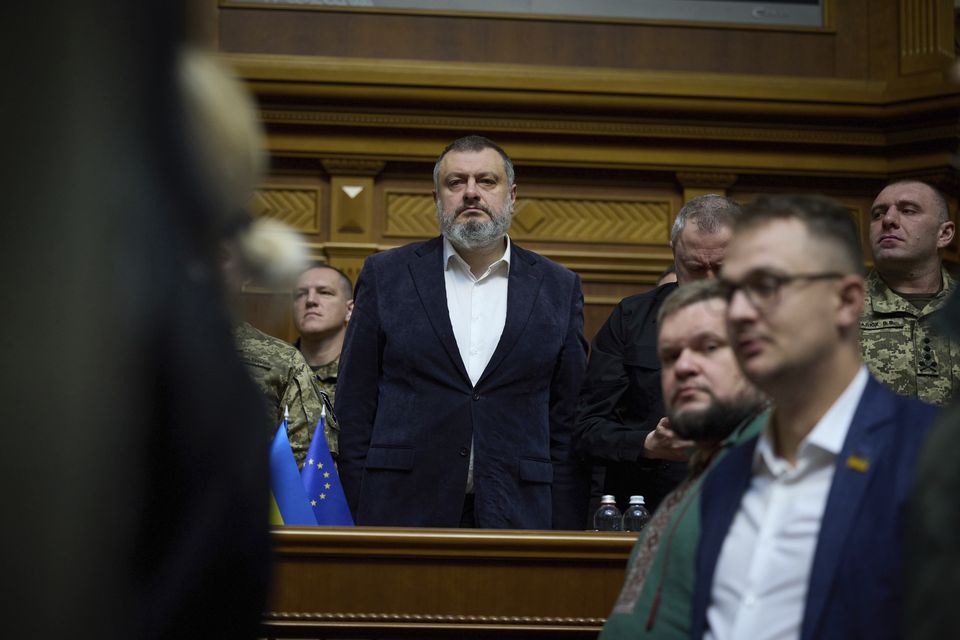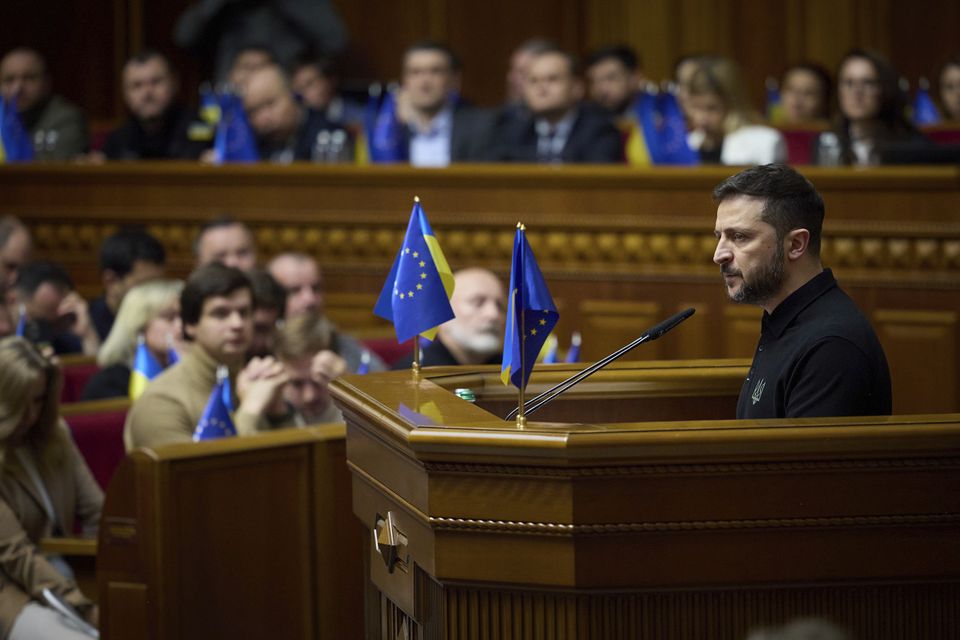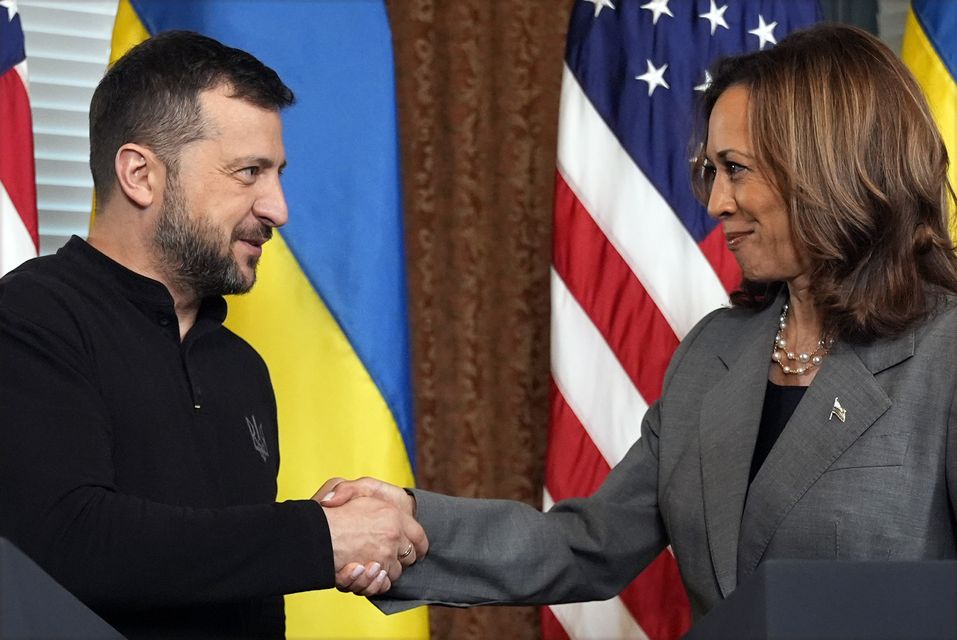Ukrainian President Volodymyr Zelensky said his plan to win his country’s fight against Russia’s invasion could bring peace next year, but it contains a step that some crucial Western allies have so far refused to countenance – inviting Ukraine to join Nato before the war ends.
“If we start moving according to this victory plan now, it may be possible to end the war no later than next year,” Mr Zelensky told his country’s parliament.
He has recently been trying to win approval for the plan from Western partners, who so far have stopped short of publicly voicing their support for it.
Oleksandr Lytvynenko, head of the Foreign Intelligence Service of Ukraine, listens to a speech by President Volodymyr Zelensky at Verkhovna Rada (Press Service Of The President Of Ukraine/AP)
The first point in Mr Zelensky’s five-point plan that was presented in a speech to the Verkhovna Rada, Ukraine’s parliament, is perhaps the most ambitious and the most likely to make Western allies baulk: letting Ukraine into Nato while the fighting continues.
Mr Zelensky said granting Ukraine membership in the alliance would be a “testament of (allies’) determination” to support Ukraine.
It may, however, be too ambitious a step.
Nato’s collective security guarantee — Article 5 of the military alliance’s treaty — is the pillar on which its credibility is based.
It is a political commitment by all member countries to come to the aid of any member whose sovereignty or territory might be under attack.
Nato makes its decisions by consensus, and many allies -– including the US and Germany -– refuse to allow Ukraine in while fighting continues because they fear being dragged into a wider war with Russia.
Ukraine’s President Volodymyr Zelensky speaks to parliamentarians at Verkhovna Rada in Kyiv (Press Service Of The President Of Ukraine/AP)
At their summit in Washington in July, Nato’s 32 members declared Ukraine on an “irreversible” path to membership in the Western military alliance.
Any decision on offering to start membership talks is probably not likely before the next summit in the Netherlands in June.
Ukraine’s troops are having trouble holding back Russia’s military might, especially in the eastern Donetsk region where they are gradually being pushed backward.
Though Russia’s gains have been incremental, its steady forward movement is slowly adding up and Ukraine keenly feels the need for more large-scale Western help.
But there are signs that Western support may be waning, diminished by a focus on the Middle East wars and domestic political concerns.
The US elections next month could bring a major shift in Ukraine’s fortunes, as Washington has been the biggest provider of military aid.
US Vice President Kamala Harris meets with Ukraine’s President Volodymyr Zelensky (Jacquelyn Martin/AP)
Mr Zelensky publicly acknowledged for the first time that in private talks with Ukraine its Western partners are increasingly talking about “negotiations” with Russia and much less frequently use the word “justice” in conversations about the war.
He also dialled up the stakes in Ukraine, repeating his recent claims that North Korea is now sending military personnel to help Russia’s war effort, as well as delivering ammunition, and that Iran and China are also aiding Moscow.
Mr Zelensky’s “victory plan” contains confidential sections which he did not mention in parliament, officials said.
Other aspects of the plan include continued striking of targets on Russian soil, including the incursion into Russia’s Kursk border region that began in August and more long-range drone strikes on Russian infrastructure.
Ukraine, he said, also needs more air defence systems and access to a broader range of intelligence from allies.
Mr Zelensky noted that Ukraine is rich in natural resources, including critically important metals “worth trillions of US dollars” such as uranium, titanium, lithium, graphite and others.
Those Ukrainian assets, as well as the country’s agricultural production, are among Russia’s key targets in the war, he said, but could be shared in post-war times with partners.
Also in a post-war period, battle-hardened Ukrainian troops would be an asset for Nato efforts to keep Russia at bay.


